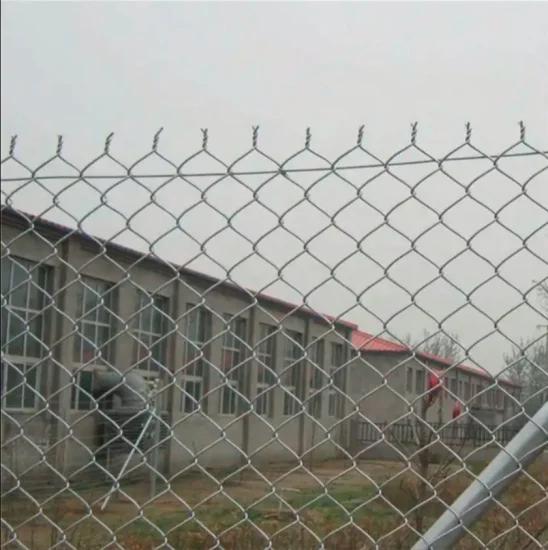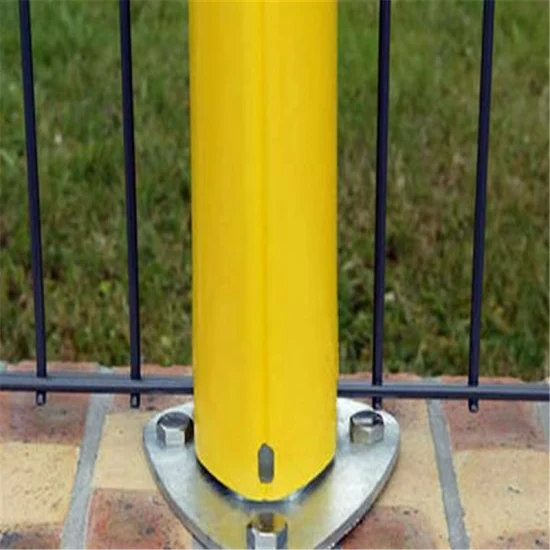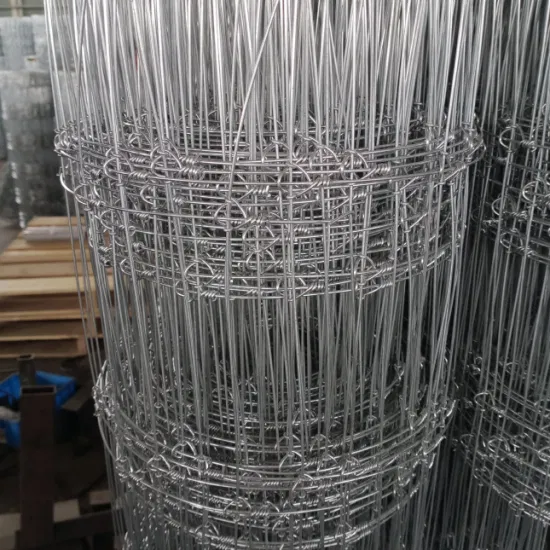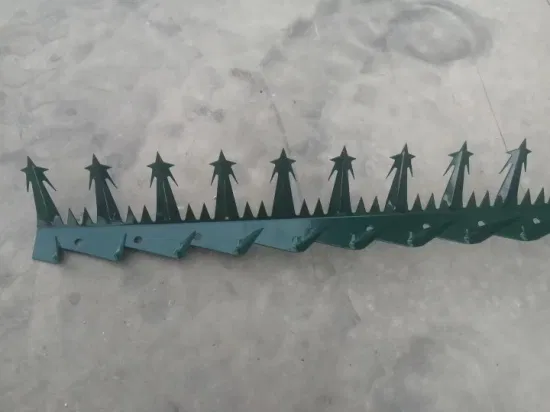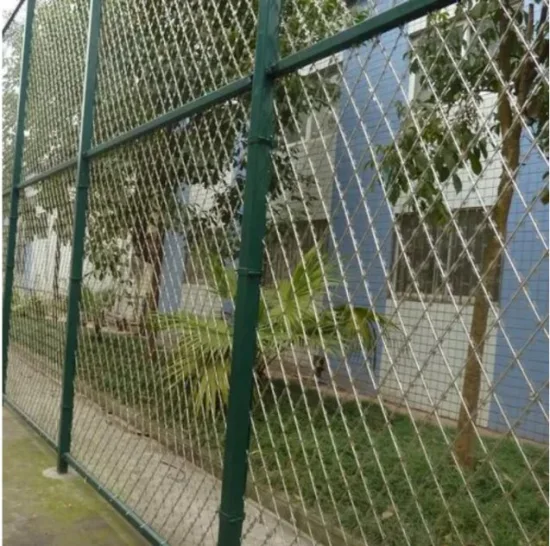Wire Mesh Fence
What Are the Advantages of Using a Wire Mesh Fence over Other Types of Fences?
Wire mesh fences offer several advantages over traditional fencing materials, making them a popular choice for a variety of applications. One of the main benefits is their cost-effectiveness. Wire mesh is generally more affordable than alternatives like wooden, brick, or stone fences, while still providing comparable security and durability. This makes wire mesh fencing an excellent choice for large-scale projects or areas where budget constraints are a concern. In addition to being budget-friendly, wire mesh fences are quick and easy to install. The modular design of wire mesh panels allows for fast assembly, reducing labor costs and installation time. Unlike wooden fences, which may require time-consuming maintenance like painting or treating for pests, wire mesh fences are low-maintenance, especially when made from galvanized or coated materials that offer resistance to rust and corrosion. This can result in long-term savings, as they do not require frequent repairs or replacements. Another advantage of wire mesh fences is their versatility. They come in various designs, such as chain-link, welded wire, or expanded metal, making them suitable for a wide range of uses, from residential properties to industrial facilities. Wire mesh fences can also be easily modified to meet specific needs, such as adding extra security features like barbed wire or electric fences for high-security areas. Additionally, the open design of wire mesh fences allows for better visibility and airflow, making them ideal for places that require light transmission or ventilation. Whether used for containment, security, or decorative purposes, wire mesh fences provide a reliable, durable, and customizable solution that can be tailored to fit the specific requirements of any project.
How Long Does a Wire Mesh Fence Last, And What Factors Affect Its Longevity?
The lifespan of a wire mesh fence can vary depending on several factors, including the material used, the environmental conditions, and the level of maintenance provided. On average, a high-quality wire mesh fence made from galvanized or stainless steel can last anywhere from 15 to 30 years, depending on these factors. One of the most important factors that influence the longevity of a wire mesh fence is the material it is made from. Galvanized steel, for instance, is coated with a layer of zinc to protect it from rust and corrosion, significantly extending the fence's lifespan. Stainless steel, known for its exceptional resistance to corrosion, is even more durable and can withstand harsher environmental conditions. Other materials, such as PVC-coated wire, offer additional protection from the elements, providing even greater longevity. Environmental factors play a critical role in the lifespan of a wire mesh fence. In coastal areas where saltwater and humidity are prevalent, corrosion can occur more quickly, potentially reducing the fence’s lifespan. Similarly, extreme weather conditions, such as heavy snow, rain, or intense sun exposure, can cause wear and tear on the fence material over time. Regular maintenance can also significantly extend the lifespan of a wire mesh fence. Inspections for signs of damage, such as rust or broken wires, should be conducted periodically. Any necessary repairs or touch-ups, such as re-coating the mesh or tightening loose wires, can help prevent further damage and maintain the fence’s functionality. Ultimately, the longevity of a wire mesh fence is a combination of the material's quality, the environment in which it is installed, and the care it receives during its service life.
What Are the Advantages of Using a Wire Mesh Fence over Other Types of Fences?
Wire mesh fences offer several advantages over traditional fencing materials, making them a popular choice for a variety of applications. One of the main benefits is their cost-effectiveness. Wire mesh is generally more affordable than alternatives like wooden, brick, or stone fences, while still providing comparable security and durability. This makes wire mesh fencing an excellent choice for large-scale projects or areas where budget constraints are a concern. In addition to being budget-friendly, wire mesh fences are quick and easy to install. The modular design of wire mesh panels allows for fast assembly, reducing labor costs and installation time. Unlike wooden fences, which may require time-consuming maintenance like painting or treating for pests, wire mesh fences are low-maintenance, especially when made from galvanized or coated materials that offer resistance to rust and corrosion. This can result in long-term savings, as they do not require frequent repairs or replacements. Another advantage of wire mesh fences is their versatility. They come in various designs, such as chain-link, welded wire, or expanded metal, making them suitable for a wide range of uses, from residential properties to industrial facilities. Wire mesh fences can also be easily modified to meet specific needs, such as adding extra security features like barbed wire or electric fences for high-security areas. Additionally, the open design of wire mesh fences allows for better visibility and airflow, making them ideal for places that require light transmission or ventilation. Whether used for containment, security, or decorative purposes, wire mesh fences provide a reliable, durable, and customizable solution that can be tailored to fit the specific requirements of any project.
How Long Does a Wire Mesh Fence Last, And What Factors Affect Its Longevity?
The lifespan of a wire mesh fence can vary depending on several factors, including the material used, the environmental conditions, and the level of maintenance provided. On average, a high-quality wire mesh fence made from galvanized or stainless steel can last anywhere from 15 to 30 years, depending on these factors. One of the most important factors that influence the longevity of a wire mesh fence is the material it is made from. Galvanized steel, for instance, is coated with a layer of zinc to protect it from rust and corrosion, significantly extending the fence's lifespan. Stainless steel, known for its exceptional resistance to corrosion, is even more durable and can withstand harsher environmental conditions. Other materials, such as PVC-coated wire, offer additional protection from the elements, providing even greater longevity. Environmental factors play a critical role in the lifespan of a wire mesh fence. In coastal areas where saltwater and humidity are prevalent, corrosion can occur more quickly, potentially reducing the fence’s lifespan. Similarly, extreme weather conditions, such as heavy snow, rain, or intense sun exposure, can cause wear and tear on the fence material over time. Regular maintenance can also significantly extend the lifespan of a wire mesh fence. Inspections for signs of damage, such as rust or broken wires, should be conducted periodically. Any necessary repairs or touch-ups, such as re-coating the mesh or tightening loose wires, can help prevent further damage and maintain the fence’s functionality. Ultimately, the longevity of a wire mesh fence is a combination of the material's quality, the environment in which it is installed, and the care it receives during its service life.






